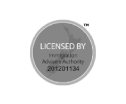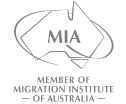For the sophisticated investor managing international mobility, proving the lawful source of funds for a New Zealand visa demands meticulous planning. Immigration New Zealand (INZ) enforces rigorous protocols to ensure funds are genuinely accessible, stable, and sufficient. This guide distills optimal strategies for high-net-worth individuals balancing global portfolios while securing visa approval.
Core Principles of Financial Evidence
Liquidity Requirements
INZ mandates that funds must be liquid and immediately accessible. Acceptable formats include cash, travelers’ cheques, bank drafts, or recognized credit/debit cards with sufficient credit. Bank statements remain the gold standard, but they must show transaction history for at least three months (six recommended) to demonstrate stability. For investors, this means avoiding locked-term deposits unless maturity aligns with the visa period. INZ explicitly rejects illiquid assets like property holdings unless supplemented by evidence of income generation (e.g., rental agreements).
Stability Verification
Unexplained large deposits (e.g., NZ$3,000+ within four weeks) raise red flags. Investors must document the source of funds through:
- Employment verification letters detailing position, tenure, and salary.
- Tax returns (personal/business) spanning three years.
- Notarized gift deeds for familial transfers, accompanied by donor financials.
Self-employed applicants should provide business registrations, GST certificates, and profit/loss statements.
Sufficiency Thresholds
Minimum funds vary by visa type:
| Visa Category | Minimum Funds | Additional Requirements |
|---|---|---|
| Visitor (sponsored) | NZ$400/month | + return travel costs |
| Visitor (self-funded, prepaid accommodation) | NZ$400/month | + return travel |
| Visitor (self-funded, no prepaid accommodation) | NZ$1,000/month | + return travel |
| Working Holiday (e.g., UK) | NZ$350/month | Country-specific |
| Study Visa | First-year tuition + NZ$20,000 living expenses | + return travel |
Strategic Documentation for Investors
Leveraging Diverse Assets
Investors can optimize evidence by:
- Consolidating liquid assets into primary accounts 3–6 months pre-application.
- Structuring investment portfolios to highlight accessible dividends or interest income.
- Using education loans (if applicable) disbursed ≥3 months before applying, with full sanction letters.
Sponsorship Nuances
When relying on sponsors (e.g., family):
- Sponsors must prove disposable income via salary slips (6 months), tax returns (3 years), or business financials.
- Accommodation provided by relatives requires property deeds/tenancy agreements and a notarized letter confirming free stay.
Avoiding Pitfalls
- Large deposits: Annotate transfers exceeding NZ$3,000 with paper trails (e.g., sale agreements).
- Currency fluctuations: Hedge accounts to maintain NZD-equivalent thresholds.
- Fixed deposits: Only use if maturing before/during the visa period.
Conclusion
For the global strategist, New Zealand visa financial proof is less a hurdle and more an exercise in fiscal transparency. Prioritize liquidity, document sources rigorously, and align evidence with INZ’s trifecta: accessibility, stability, and sufficiency. By preemptively structuring assets—from education loans to sponsorship frameworks—you transform bureaucratic compliance into a testament of financial prudence.










